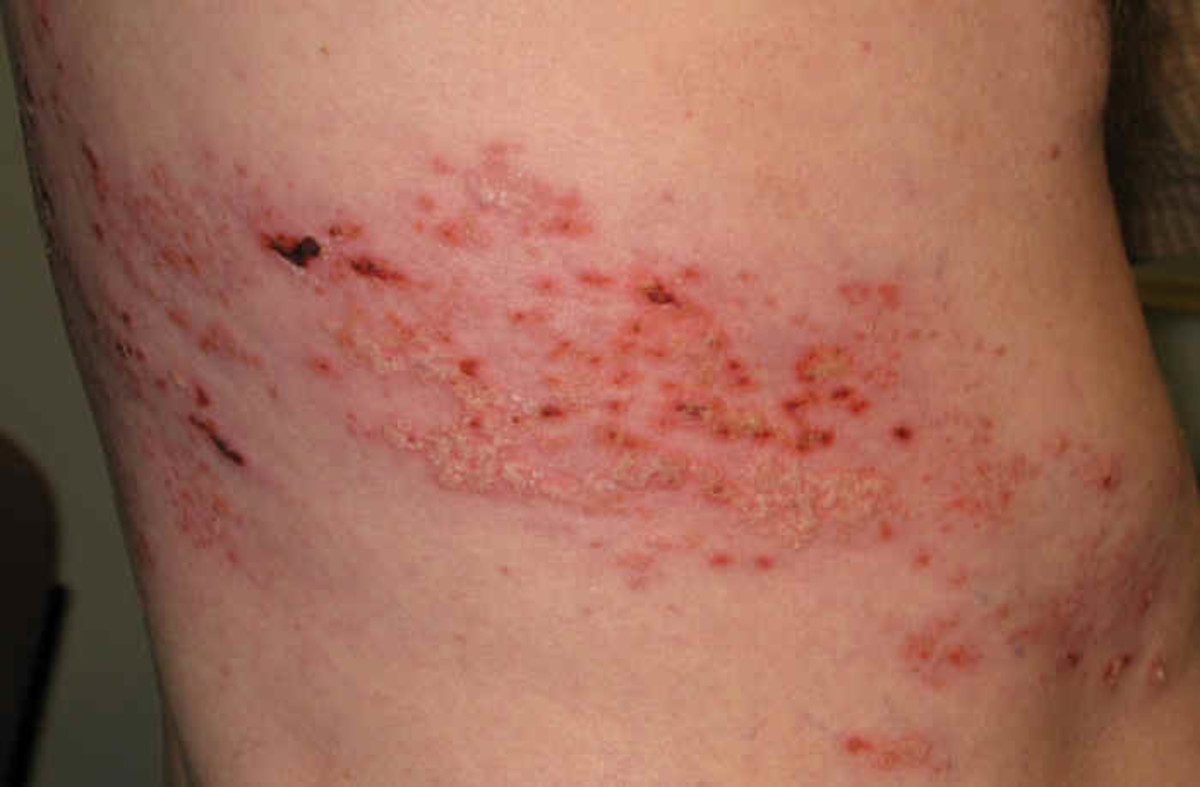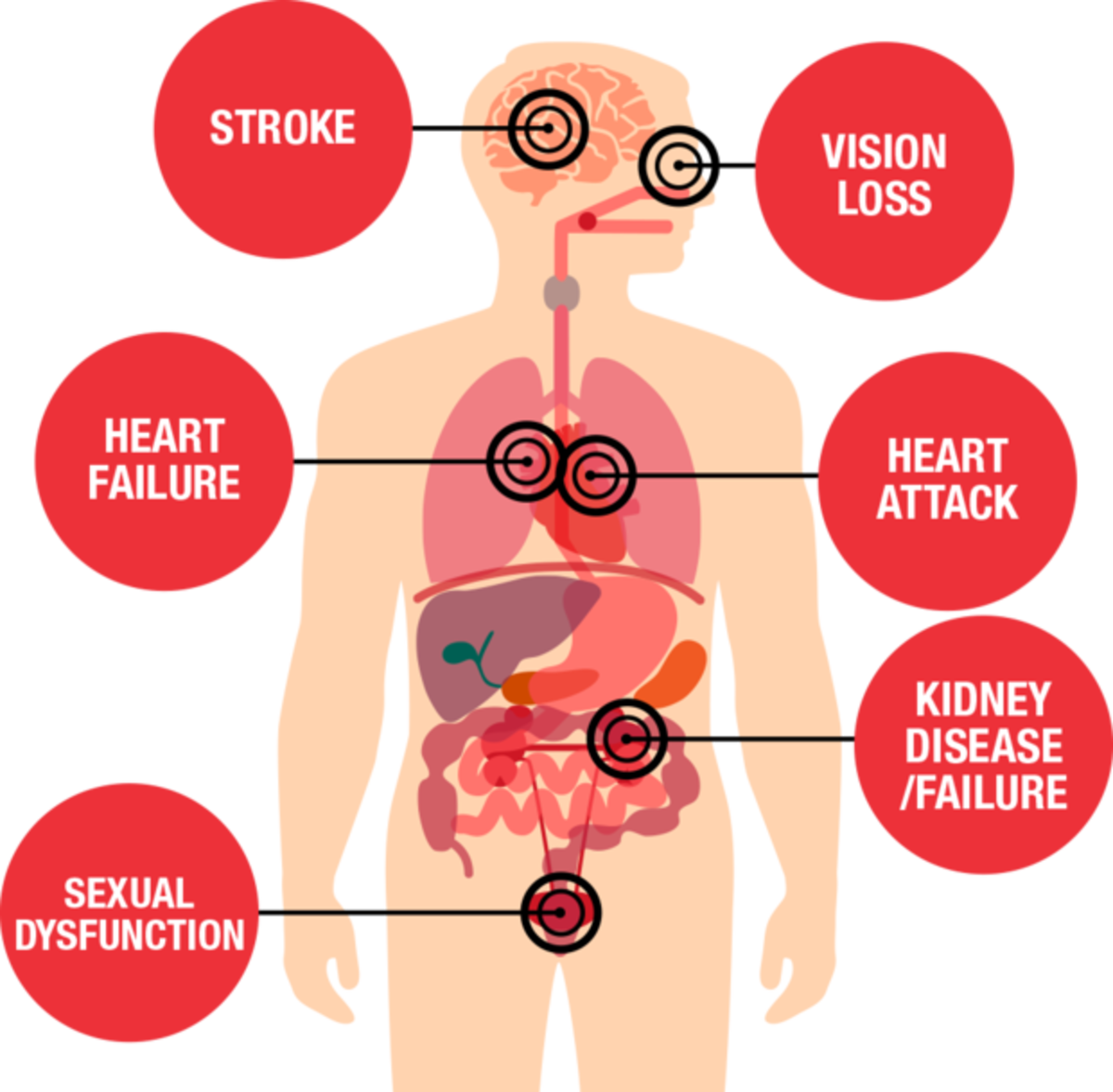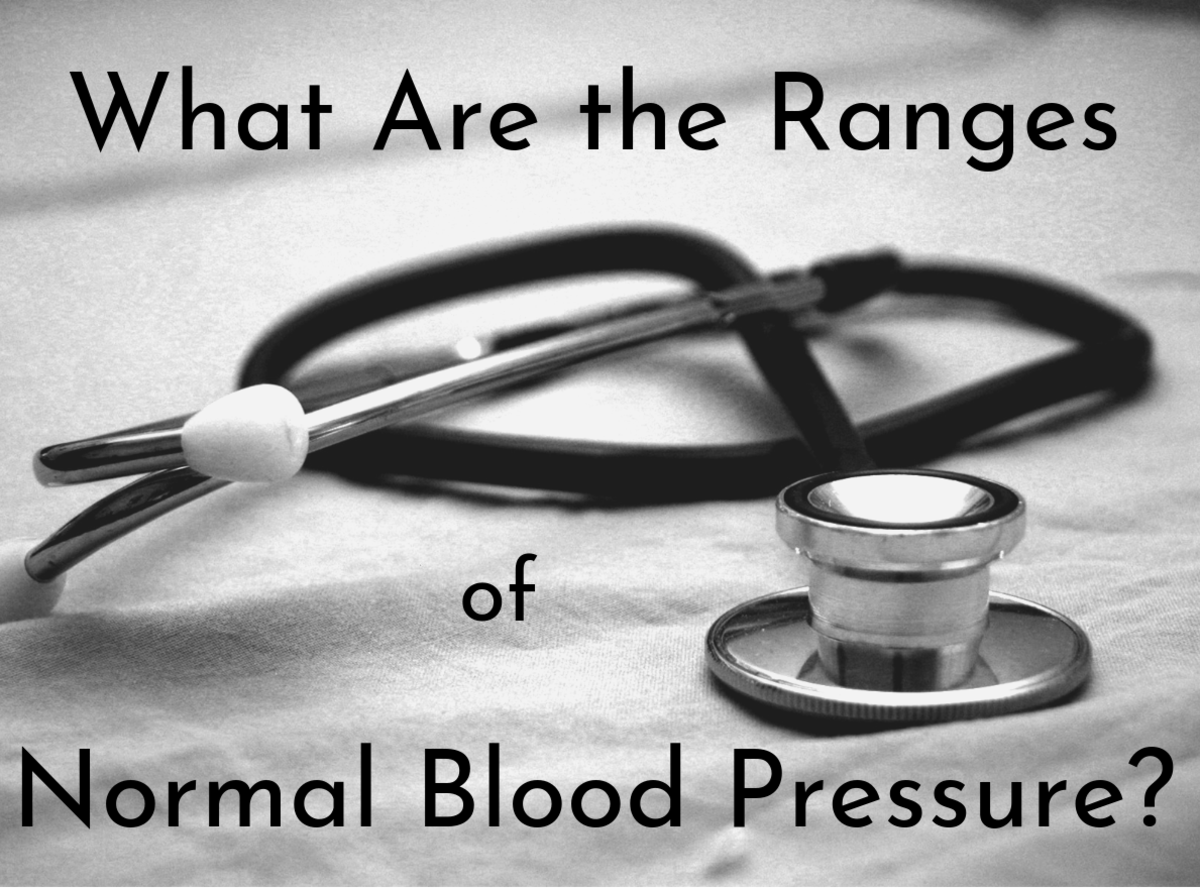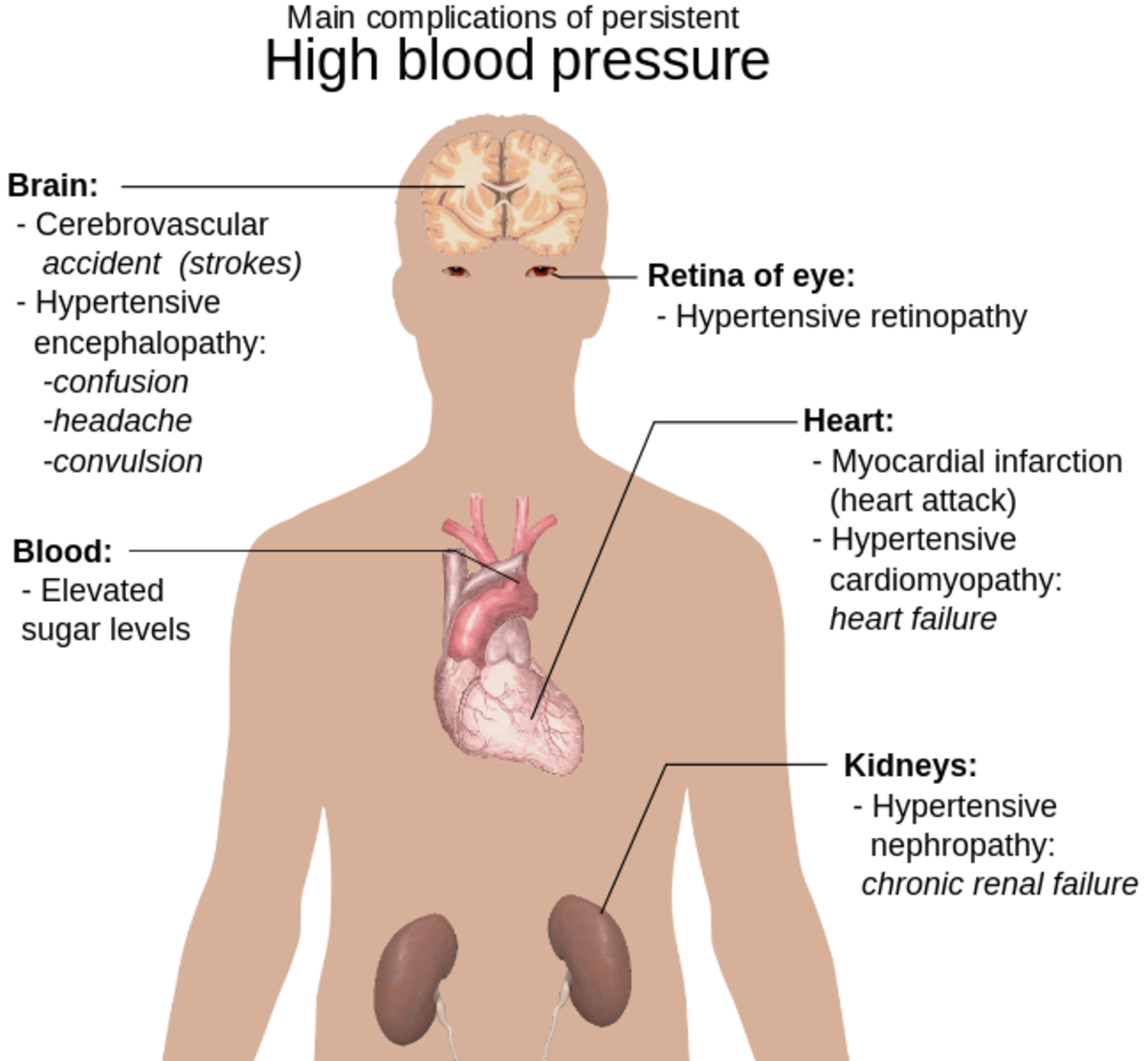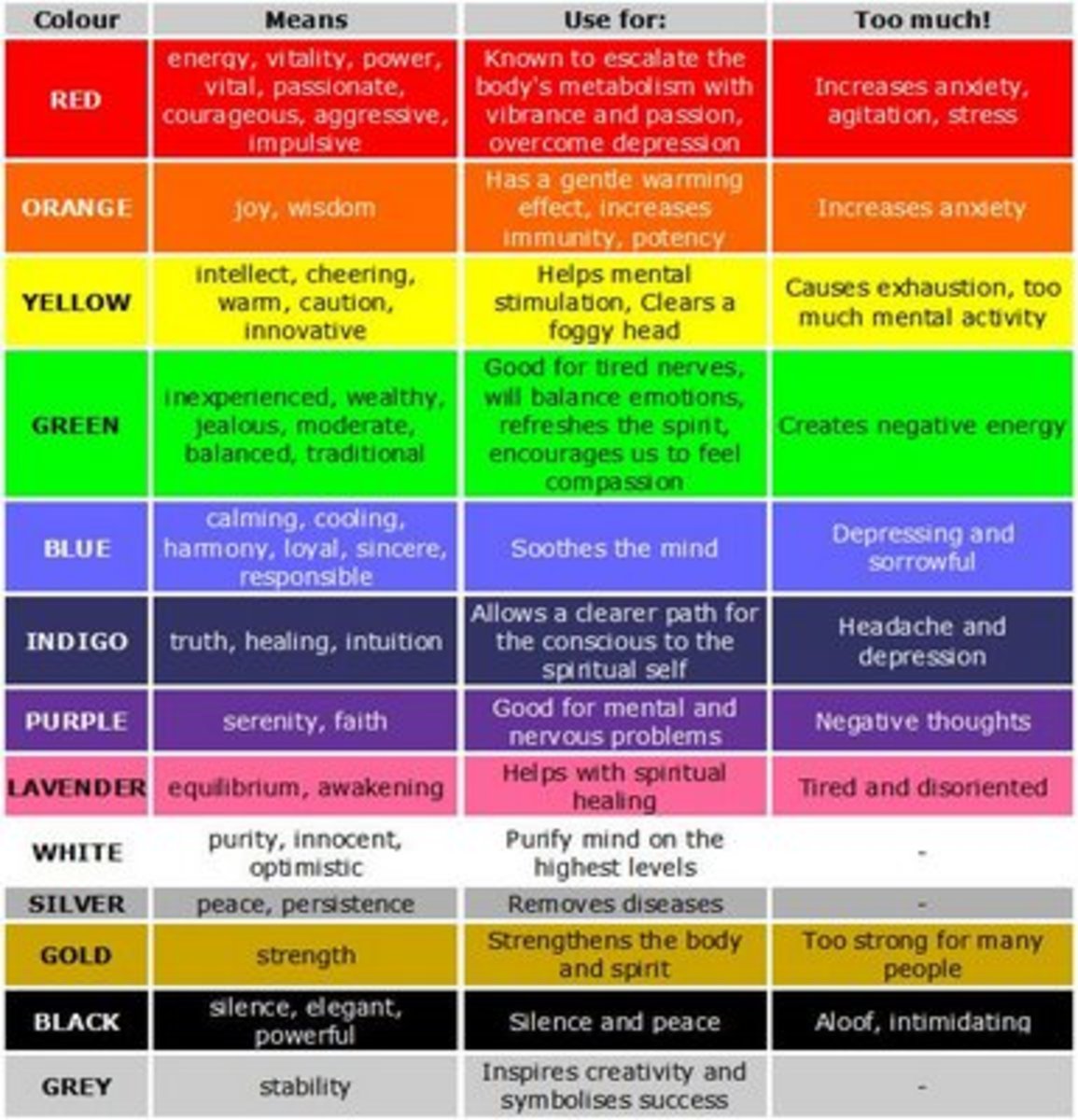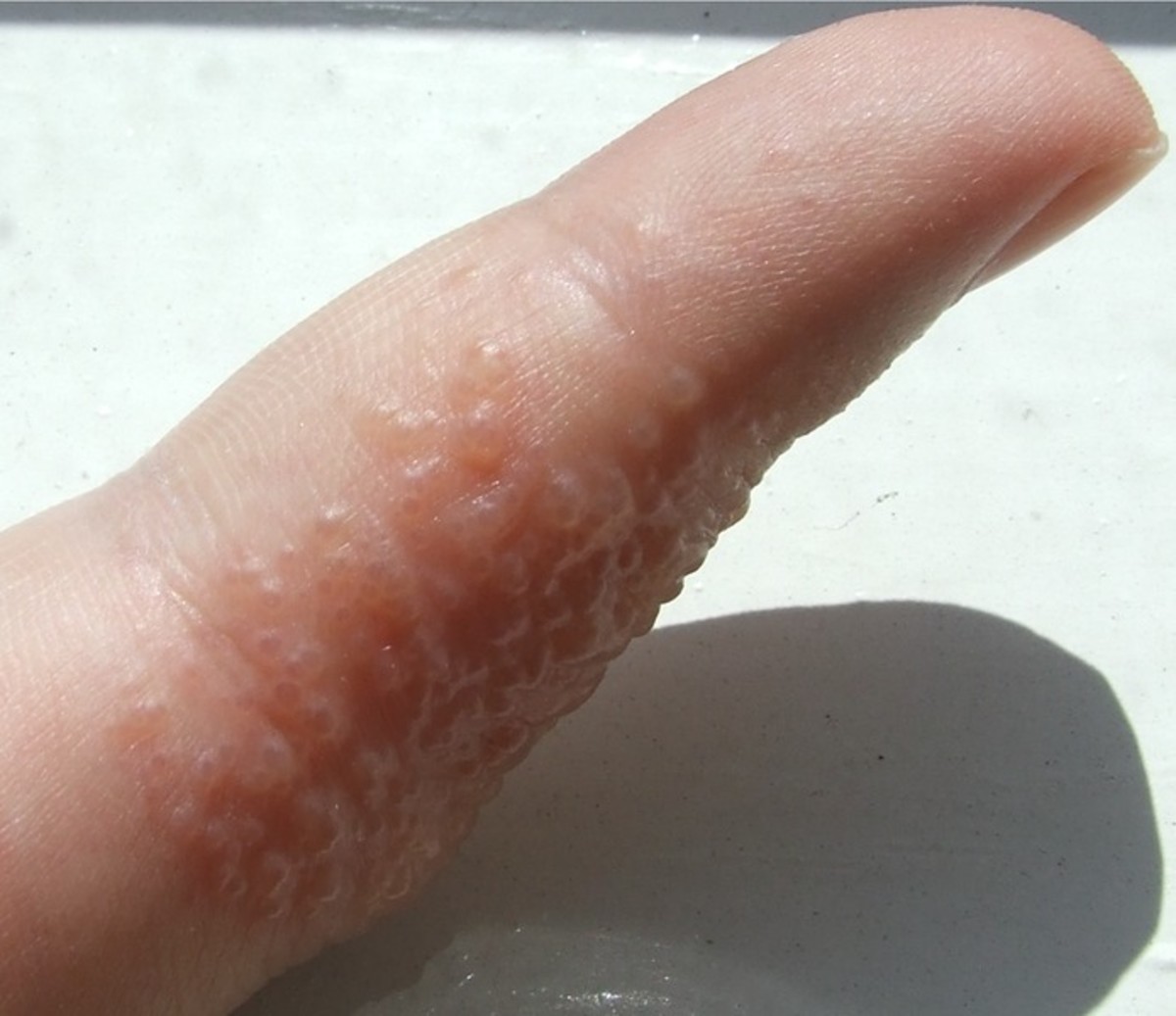Hypertension - A Natural Approach
Discussion of Hypertension
Hypertension often has no symptoms at all, which is one reason why it is so dangerous; many people have hypertension without knowing it. Accordingly, the discussion will be all about the causes rather than the symptoms of hypertension.
All too often, the first sign of hypertension is some drastic event such as a stroke or heart attack, which are much more prevalent in people who have hypertension. This fact has two reasons behind it; hypertension is usually caused by a circulatory system in poor condition and an unhealthy circulation is more likely to have problems - and also hypertension puts more stress on the circulation, thus making catastrophic events such as this more likely.
Hypertension is sometimes perfectly normal, such as while doing very strenuous exercise particularly maximum-effort exercise such as weightlifting. It can also be caused by various other medical problems; an example of this connection is pre-eclampsia. In the latter case, sorting out the underlying problem will very likely sort out the hypertension. However, the vast majority of cases of hypertension are “essential” hypertension; that is, hypertension with no obvious medical cause. This much more common condition is what this article will be about.
Causes of Hypertension
Hypertension, as previously stated, is often caused by an unhealthy circulatory system. In particular, hypertension is often caused by blood vessels (mostly arteries) that are thickened, abnormally inflexible or a combination of both. It can also be caused by being overweight or obese (the difference between these two being a matter of degree) simply because there is more circulation, in such a case, to push the blood through. Prolonged stress can elevate blood pressure, largely because of the effect of stress on the adrenals. Lack of certain minerals, particularly potassium and magnesium, can cause hypertension by causing spasm of the muscles in the arterial wall.
Dietary Factors
Dietary factors for hypertension are very similar to those for other sorts of ill-health. Over-consumption of de-vitaminised, processed food, fried food, red meat, animal fat, hydrogenated fats and easily absorbed carbohydrates (such as sugar and white bread) promotes hypertension; conversely, eating more high-fibre food, vegetables and fruit makes hypertension less likely. Also, over-consumption of common salt causes hypertension in some people; the best estimate for this proportion is 50%. Since it is pretty well impossible to find out whether you are salt-sensitive or not, restricting sodium might be a useful precaution as long as you don’t go too far. After all, sodium is an essential mineral.
Smoking
Smoke contains enormous amounts of powerful free radicals, carcinogens and other toxins including cadmium and carbon monoxide. Cigarette smoke in particular also contains nicotine, which as any smoker knows is powerfully addictive and also a vasoconstrictor; in other words narrows blood vessels. Other types of smoke, particularly marijuana smoke, obviously don’t contain nicotine but do contain even more toxins - probably because “joints” aren’t usually filtered.
Lack of Exercise
Lack of exercise can lead to overweight, which causes its own set of problems. In addition, lack of exercise tends to mean that when you have to do exercise - perhaps running for a bus - the rise in blood pressure is much higher than in someone who regularly exercises. In addition, if you don’t exercise regularly your resting heart rate will be higher than if you do. This matters because the arteries take some damage every time the heart beats.
Overweight and Obesity
The difference between the two is a matter of degree. Someone who is overweight simply has more blood vessels than someone of healthy weight, and the ones that do exist are narrower. Both of these can cause hypertension.
Stress
Stress, particularly when it is not physical, causes damage to the circulatory system by various means including narrowing of the arteries and excessive blood sugar levels. High adrenalin levels associated with heavy exercise usually don’t cause problems; high adrenalin caused by being cut up in traffic or being shouted at by the boss might.
Homocysteine
Most people have heard of all the risk factors mentioned so far, but homocysteine is a lot more obscure. Homocysteine is a metabolic intermediate compound between methionine and cysteine, and in a healthy well-nourished body it is swiftly mopped up. However, homocysteine needs several vitamins in the B group to be metabolised and if they are lacking homocysteine can accumulate. Homocysteine is quite toxic, so high levels can cause blood vessel damage potentially leading to hypertension.
Atherosclerosis
Arteries with partial blockages caused by build-up of fatty deposits raise blood pressure as well as being a risk for catastrophic damage such as stroke or heart attack. However, except in the case of familial hypercholesterolaemia, this problem is usually the result of blood vessel damage from the factors above rather than being independent of it.
Lack of Essential Fats
Lack of essential unsaturated fats, particularly omega-3 oils commonly found in oily fish, tends to make the blood more viscous, making it harder to pump and thus raising blood pressure. In addition, lack of these fats makes the blood more likely to clot where it shouldn’t. These oils also have innumerable other benefits including benefits for brain function.
Mineral Imbalance
Lack of potassium and/or magnesium can lead to spasm (essentially the same problem as cramp) in the walls of the arteries, narrowing them and possibly causing hypertension thereby. Also, lack of these two nutrients can cause problems in the periphery of the body such as Reynaud’s syndrome and chilblains.
Natural Remedies for Hypertension
Diet
A diet low in trans and hydrogenated fats, sugars, easily released carbohydrates, heated fats (from fried food) and artificial chemicals and also high in oily fish, seeds, nuts, fresh fruit, fresh or frozen vegetables and fibre is advisable. This is very little different from the usual healthy diet advice. In addition, large amounts of garlic and onions (also leeks) in the diet have antioxidant effects, reduce blood fat levels, make the blood less viscous and make the blood less likely to clot where it shouldn’t.
In other words, clean up your diet. Eat as little junk, processed food as possible and more natural foods.
Exercise
If you currently do very little exercise, then it is a very good idea to increase the amount you do. However, if you are currently very unfit, overweight or obese and/or middle-aged or older then you should take medical advice first. In any event, increase exercise levels gradually. All too often, people suddenly switch from being couch potatoes to exercising heavily and suffer heart attack or stroke almost immediately.
For this purpose, half an hour of moderate exercise such as walking per day is enough. A good rule of thumb is that you should be breathing somewhat hard, but not so hard you can’t talk.
Supplements
- · Magnesium: preferably citrate or chelate, 500 mg per day.
- · Coenzyme Q10: supports heart action and has powerful antioxidant effects. 30-100mg per day, preferably in an oil base.
- · Essential fatty acids: 1000-2000mg of omega-3 rich fish oil per day.
- · Vitamin C: powerfully antioxidant. 1000-2000mg per day, in as many doses as practically possible.
- · Multivitamin: High-strength multivitamin complexes would typically contain as much of the B vitamins and zinc (needed to remove homocysteine) as needed, together with vitamin E which also helps.
Herbal Aids
- · Hawthorn: This herb contains antioxidant bioflavonoids, and also contains compounds which have similar effects to ACE inhibitor drugs; namely, they boost heart action somewhat and also dilate blood vessels.
- · Garlic: reduces blood fat levels, makes blood less viscous and has anticoagulant effects.
- · Ginkgo Biloba: has vasodilatory and anticoagulant effects. Particularly important for problems in peripheral blood vessels.
Enzymes
Certain proteolytic (protein-dissolving) enzymes can benefit people with circulatory problems including hypertension. The main ones used are bromelain (from pineapples), serrapeptase (from a bacterium originally found inside silkworms, though not made that way now) and nattokinase, which is found in small amounts in the traditional Japanese soya-based food called natto. Nattokinase is thought to actually come from the fungi used to make natto and other similar products.
Any of these would work, but bromelain is probably the most difficult to use because it has to be used on an empty stomach. The other two benefit by being used in this manner, but it isn’t quite as critical. Nattokinase seems to be easier to get in the USA; serrapeptase in the UK.
All of them work by increasing the fibrinolytic pathway, thus eventually dissolving clots and arterial plaque.

